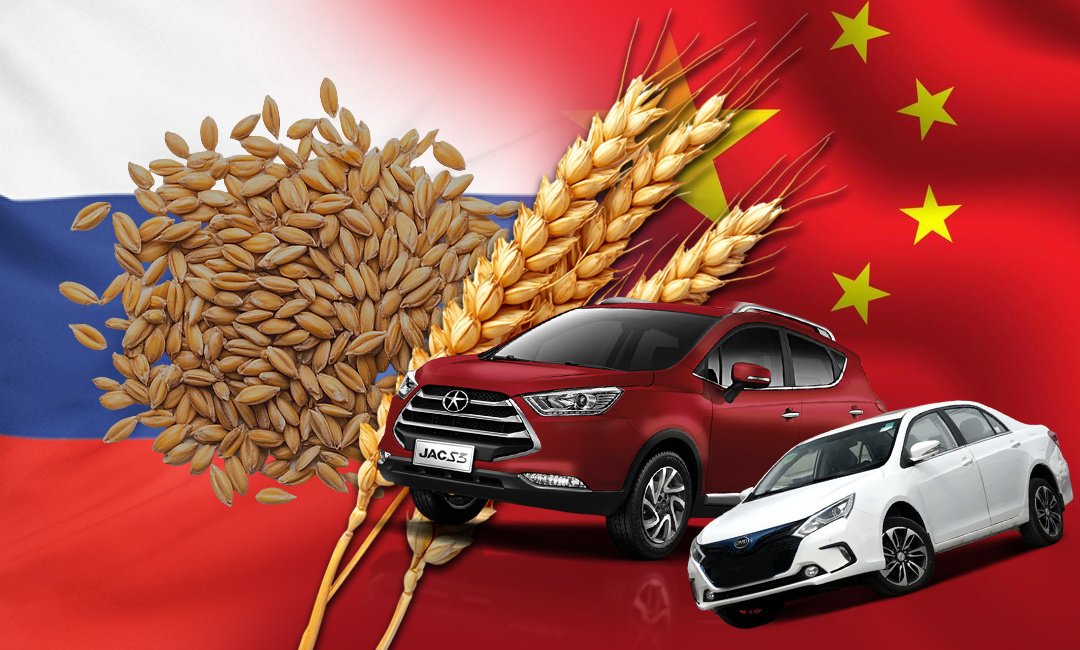Cars for Grain: Russia Revives Barter to Bypass Sanctions

Russia is increasingly reviving barter trade in its foreign dealings, swapping goods such as wheat for Chinese cars and flax seeds for building materials, as Western sanctions and banking restrictions make traditional payments harder to process.
The Gaze reports this, referring to Reuters.
The return to barter, last widely seen in the chaotic 1990s, highlights the growing pressure on Moscow’s economy, despite President Vladimir Putin’s insistence that it is outperforming Western expectations.
Since 2014, and especially after Russia’s full-scale invasion of Ukraine in 2022, the United States, the EU and their allies have imposed more than 25,000 sanctions on Moscow.
Russian banks were cut off from the SWIFT global payments system, while Washington has warned Chinese lenders of the risk of secondary sanctions if they facilitate transactions with Russian entities.
Those restrictions have spooked financial institutions and pushed businesses to find alternatives. A payment market source told Reuters that “Chinese banks are afraid of being placed on sanctions lists … so they do not accept money from Russia.”
In 2024, Russia’s Ministry of Economy issued a 14-page guide advising companies on how to conduct foreign barter deals without cash transfers, even suggesting the creation of a dedicated barter exchange.
The ministry described barter as a way to exchange goods and services “under conditions of sanctions restrictions.”
Though initially limited, Reuters has identified at least eight confirmed transactions since last year, ranging from steel and aluminum alloys traded for marine engines to flax seeds exchanged for household appliances. One flax deal alone was valued at around $100,000, according to regional customs data.
Analysts note that barter’s true scale is difficult to measure, but discrepancies between customs and central bank statistics, amounting to $7 billion in the first half of 2025, could reflect unreported barter flows. Russia’s customs service has confirmed barter trade with several countries but described its overall scale as “insignificant.”
Still, Russia’s trade surplus shrank 14% in January–July to $77.2 billion, as exports fell to $232.6 billion and imports rose to $155.4 billion. Officials say barter transactions are not separately tracked, as they are included within general trade figures.
Among the most striking examples, two sources told Reuters that Chinese cars were delivered to Russia in exchange for wheat.
In another set of transactions, flax seeds were swapped for Chinese building materials. Additional deals involved metals, raw materials, and services, with some reports of barter enabling access to Western goods otherwise restricted by sanctions.
While some businesses rely on “payment agents,” cryptocurrencies, or Russian banks with foreign branches, barter is emerging as a parallel system to keep trade flowing.
Read more on The Gaze: How Sanctions Against Russia Taught the West Dynamic Financial Blockades